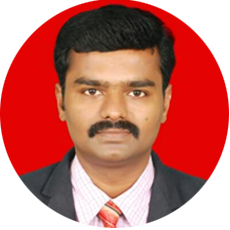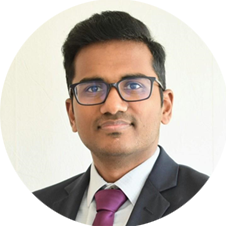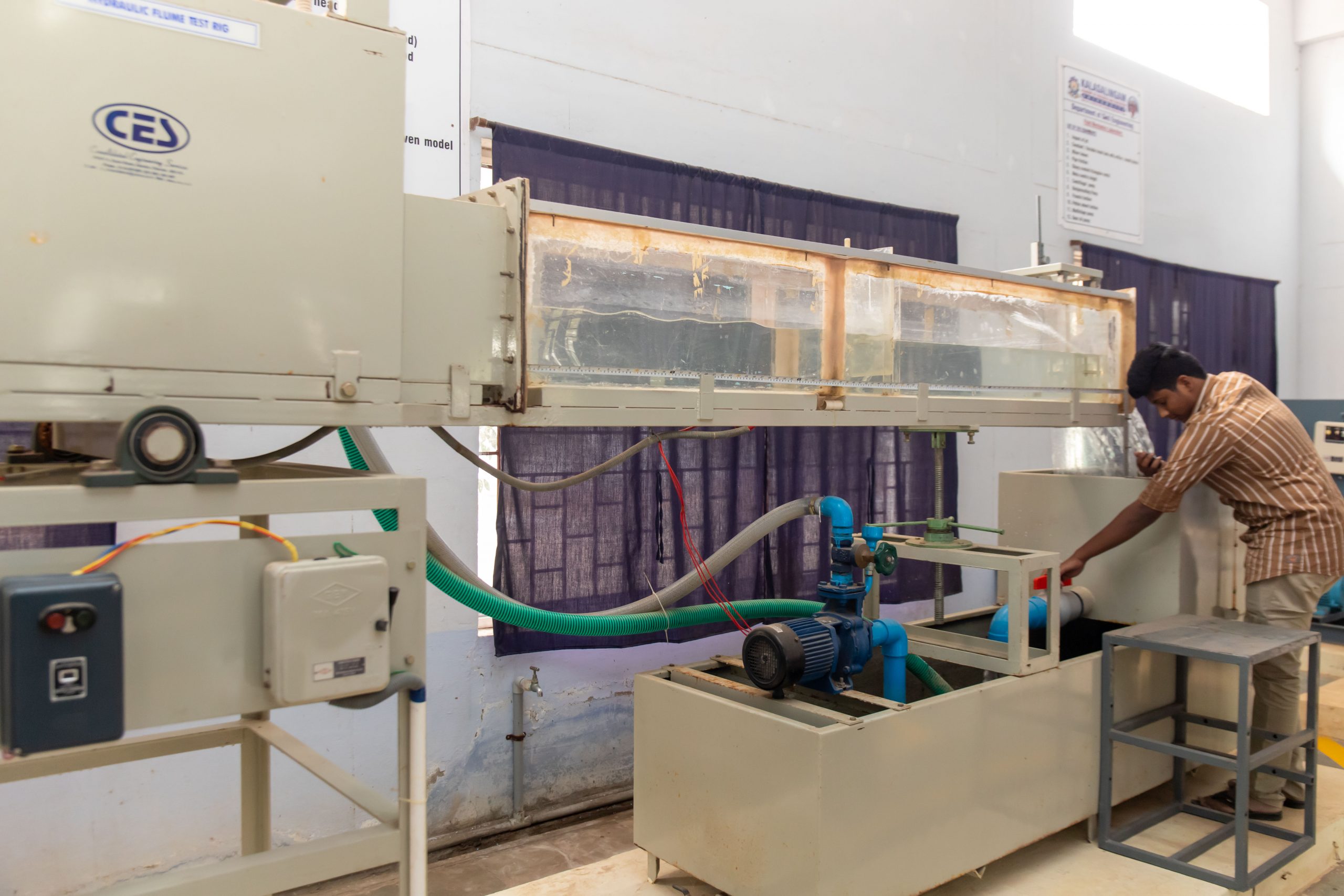

To be a Centre of Excellence of International repute in education and research in the field of Chemistry and other related Interdisciplinary Sciences.


To promote the advancement of science and technology in the broadest in chemistry in all of its branches and other related interdisciplinary areas through quality education, research and service missions that produce technically competent, socially committed technocrats and scientists.
The Department of Chemistry is Established in 1984, it is one of the oldest in all aspects and has played an important role in the University. The Department of Chemistry started offering B.Sc. in Chemistry in 2015. The institute is accredited by NAAC ‘A’ grade and the faculties of the Department are also highly competent, intellectual and devoted. The faculty members are well-versed in a variety of fields and have undergone training in Japan, the United Kingdom, France, Malaysia, South Korea, and Taiwan, among other places. They are interested not only in teaching but also in advanced research. The Department has well-equipped research laboratories, internet, and library facilities, which enable students to generate creative ideas. It has an independent research laboratory for organic synthesis as well (1000 sq.ft.).
The Faculty members are carrying out research in the following areas: Energy materials, Polymer Chemistry, Nanocatalysis, Bioinorganic Chemistry, Computational Chemistry, Electrochemistry, Organic Synthesis, Environmental Applications, Supramolecular Chemistry, etc. The Department has a separate departmental library with more than 500 books / technical journals and magazines and acts as a catalyst for the achievement of the students.
Chemistry is concerned with the essence of all substances and the modifications that occur within them. The study of chemistry will provide students with information that will help them understand and appreciate the world in which they live. Furthermore, knowledge of chemistry is extremely useful in fields such as engineering, biology, and medicine.
The Department’s degree programmes emphasise experimentation, learning through hands-on laboratory experience, and research-driven problem-solving. The objective of the graduate programme in chemistry is to provide a setting for graduates to broaden their skills in order to become the cream of the crop in scientific research and education, capable of making original contributions to the development of chemistry and related disciplines.
The programme aims at accomplishing 3 major objectives:
Expertise in Chemistry: Will be able to meet the needs of chemistry-related industries and laboratories, including pharmaceutical/analytical chemistry.
Professional Growth: Will be able to show information literacy skills in order to acquire chemistry expertise as a chemist/researcher and as a life-long learner.
Analytical Skills: Will be able to easily convey scientific knowledge and research findings in written and oral formats to both trained scientists and the general public.
Kalasalingam Academy of Research and Education is focused and involved in research-based studies and the university has been offered grants from time to time funded by different prestigious departments working in the field of Science & Technology. The Institution is granted the funding for doing research and development in the field of Science & Technology. Students in B.Sc, the projects based on funding projects which are received from government and also community-based work such as water sensor and treatment. By taking research and practical exposure of the students, faculty motivates the students of B.Sc.-Chemistry to do brainstorming and think out of the box.
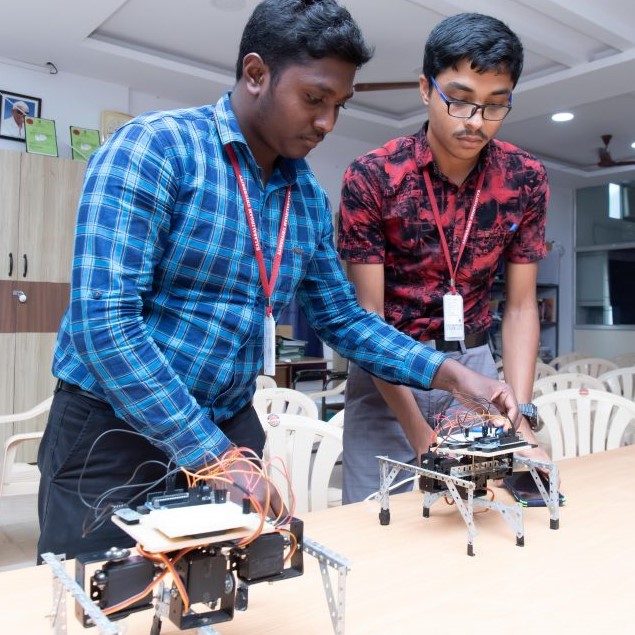
Thermodynamics Lab
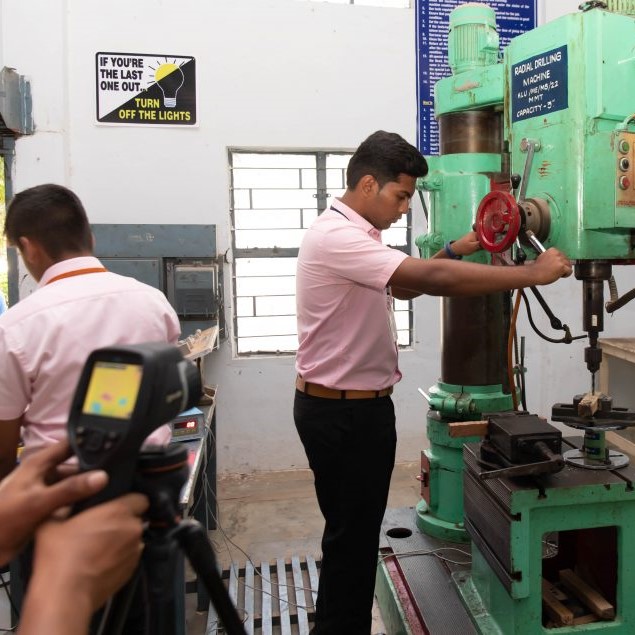
Materials Lab
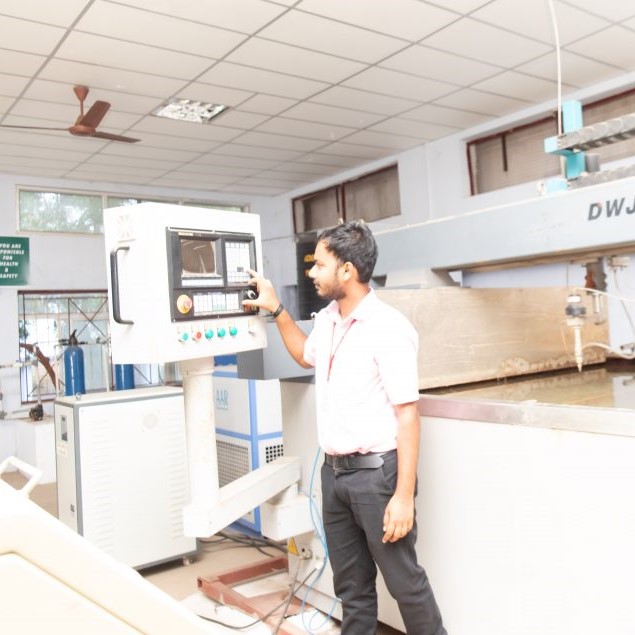
Labs
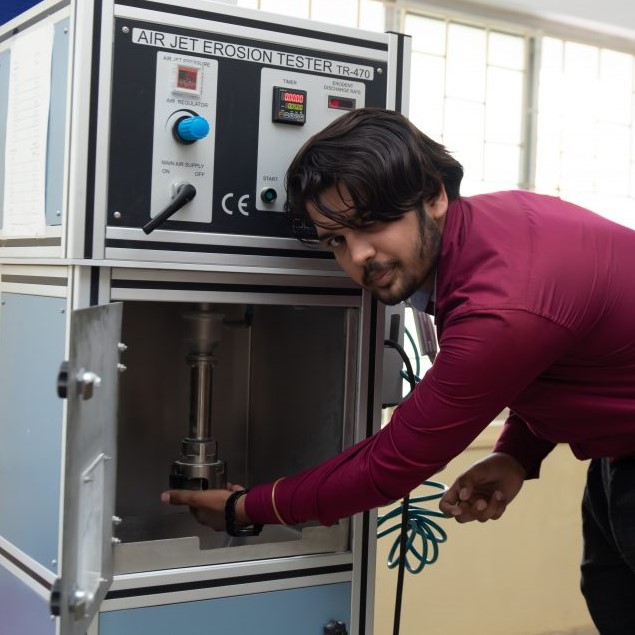
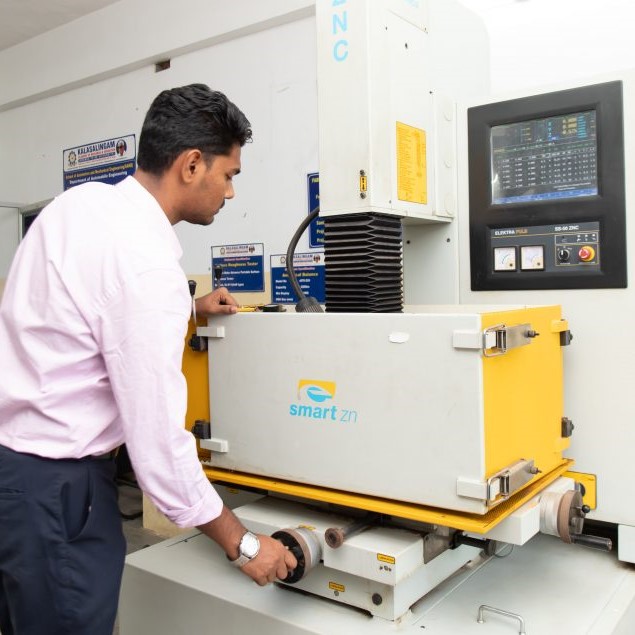
Labs
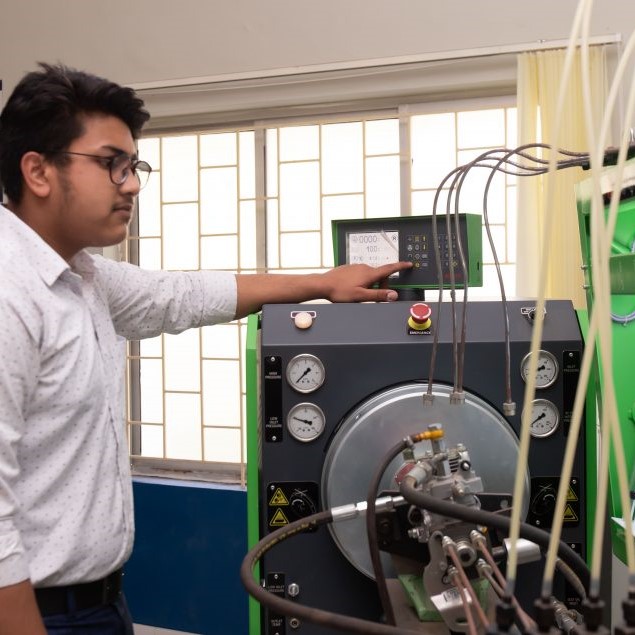
Labs
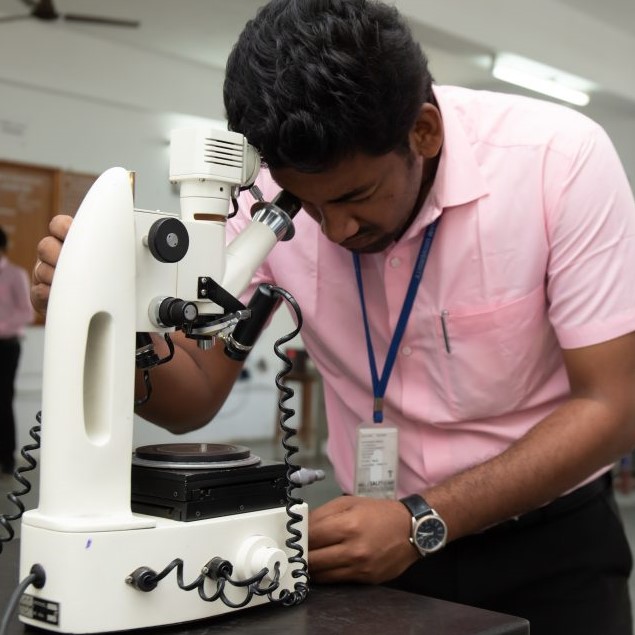
Labs
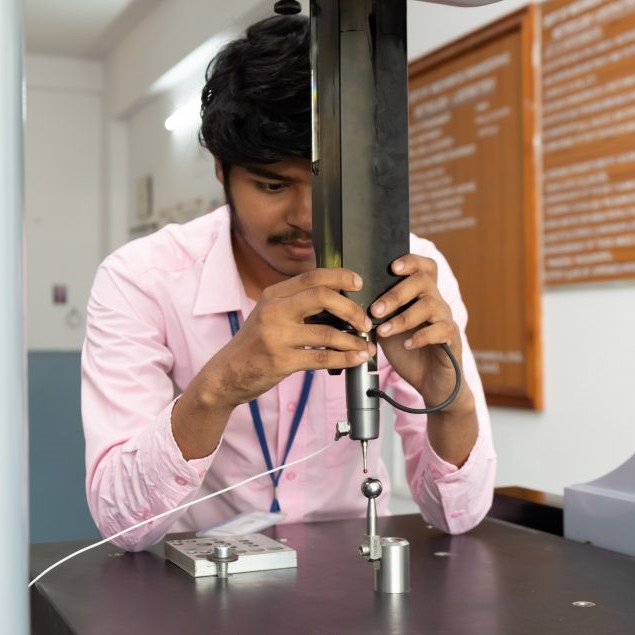
Labs
Program Outcomes (PO)
1. A solid foundation in chemical principles has been established, as well as a higher level of understanding in each of the chemistry sub-disciplines such as organic, inorganic, physical, and analytical chemistry, as well as fundamental principles of biotechnology, mathematics, and physics.
2. Developing a working knowledge of chemical instrumentation and laboratory methods, as well as the ability to design and carry out independent work.
3. Understanding of current ethical problems in chemistry, as well as the ability to apply ethical standards in industries and research laboratories.
4. Familiarity with computer applications in chemistry: Chemical phenomena modelling and simulation.
5. Communicate work findings to chemists and non-chemists, thus adhering to the practice of conscientious citation of prior contributions.
Expertise in Chemistry:
Will be able to nurture the needs of industries/laboratories related to chemistry including pharmaceutical/analytical chemistry.
Professional Growth:
Will be able to demonstrate information literacy skills for acquiring knowledge of chemistry, as a chemist/researcher and also as a life-long learner.
Analytical Skills:
Will be able to communicate effectively the scientific information and research results in written and oral formats, to both professional scientists and to the public.































I take this opportunity to thank my professors and mentors of KARE who showed me the path to reach heights. I graduated from KARE during 2013 with not only academics but also with skills which is very much required by the Industries. Our institution has a wonderful curricula which focuses both on CGPA and Non-CGPA as well, which fired the inherent design skills in me. The quality faculty and the evergreen environment made me to grow further to achieve many laurels in my career.
Er. S. Mohammed Sabiq
Senior Engineer
Renault Nissan Pvt Ltd.
Chennai
2009-2013 batch
